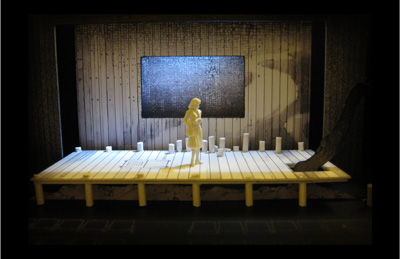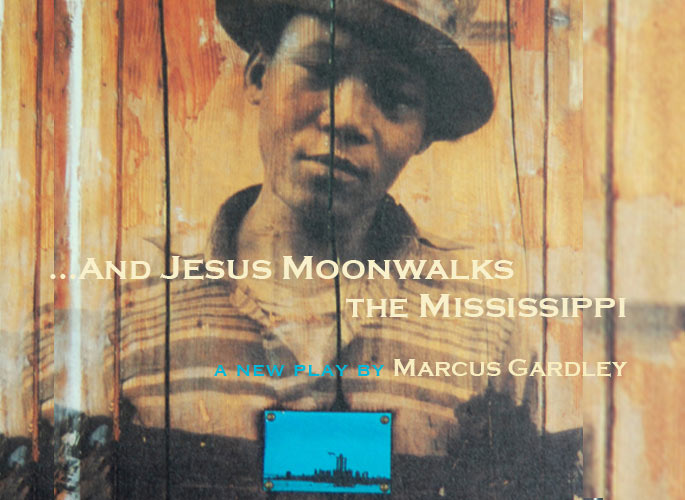
...And Jesus Moonwalks the Mississippi
March 12 – April 25, 2010
A New Play by Marcus Gardley
directed by Amy Mueller
A co-production with
Playwrights Foundation
“Jesus Moonwalks is in a lot of ways my signature play. It is based upon a story my great-grandmother used to tell about her father who fled the bonds of slavery and traveled the country in search of his family.”
-Marcus Gardley, playwright
About the Play
Set on the banks of the Mississippi during the Civil War, ...and Jesus Moonwalks the Mississippi is a poetic journey of forgiveness and redemption inspired by the myth of Demeter and Persephone. This thought-provoking play combines traditional storytelling, gospel music, and a wicked sense of humor to create a rich, imaginative world that allows trees to preach, rivers to waltz, and Jesus to moonwalk.
Artwork by Keba Armand Konte
The Cutting Ball Theater’s production of...and Jesus Moonwalks the Mississippi is made possible in part by the Creative Work Fund, the San Francisco Arts Commission, and the Zellerbach Family Foundation.
Press
The mighty Mississippi doesn't just flow in Marcus Gardley's impressive "…and Jesus Moonwalks the Mississippi": It undulates, narrates, entices, floods, beatboxes and sings traditional spirituals like an angelic female chorus. And, yes, when the time comes, Jesus can moonwalk with the best.
– Robert Hurwitt, San Francisco Chronicle
In this inspired poetical-historical counter-narrative from Bay Area playwright Marcus Gardley, Greek mythology, African American folklore, personal family history, and Christian theology are all drawn irresistibly along in a great sweep of wild and incisive humor, passion, pathos and rousing gospel music as buoyant and wide as the Mississippi… a work both magnificently simple and eloquently evocative.
-Rob Avila, San Francisco Bay Guardian
When you go to see Marcus Gardley's …and Jesus Moonwalks the Mississippi – which you should – it feels like what you're witnessing is not just a fascinating new play, but an important one…Suffused with metaphor and mixed mythology, it's more challenging than your average new play, and it's a challenge that's richly rewarded in the Cutting Ball Theater and Playwrights Foundation coproduction at the Exit on Taylor in San Francisco.
– Sam Hurwitt, Marin IJ
Quilts and buttons are stars and stories in Marcus Gardley’s deeply lyrical, undeniably beautiful …and Jesus Moonwalks the Mississippi… Interspersed amid some gorgeous spirituals, Gardley pours poetry over the drama and lets it cascade like water down a fall. The rhymes and images are so plentiful it would take a second viewing to appreciate them all. Powerful, mesmerizing and complete with bolts of humor and tragedy, …And Jesus Moonwalks the Mississippi is an intimate epic that pulses with power and beauty.
– Chad Jones, Theater Dogs
…and Jesus Moonwalks the Mississippi represents another excellent example of what Cutting Ball continues to present as it celebrates its 10th anniversary season — theater of extraordinary intelligence, innovation and imagination, at reasonable prices, too
– Leslie Katz, SF Examiner
This beautifully crafted stage fantasy, structured like an American epic, grips its audience at the outset and never lets go. Staged with remarkable theatricality in a tiny playing area, …and Jesus Moonwalks the Mississippi is a mesmerizing evening in the theatre.
– George Heymont, My Cultural Landscape
Gardley got the idea for "Jesus Moonwalks the Mississippi" from a story his Louisiana-born great-grandmother used to tell about her father, who freed himself from slavery but gave her up to another family after her mother died of tuberculosis. Later, riddled with guilt, he traveled the country until he found her.
– SF Chronicle
Marcus Gardley was born and raised in Oakland, and several of his award-winning plays have been set in the Bay Area. But with his latest work, “…and Jesus Moonwalks the Mississippi,” the playwright takes audiences on an epic journey to the Deep South during the Civil War.
– SF Examiner
This play with music has to be one of the most interesting and incredible presentations that I’ve ever experienced…You have to be there to surround yourself with the over-whelming crescendo of talent…It is astounding, powerful and inventive!
– Lee Hartgrave, Beyond Chron
…and Jesus Moonwalks the Mississippi gives African American culture a home in the context of universal human ideals. Gardley defiantly breaks the rules of literary hierarchy. In this play, Michael Jackson is as epic as Homer and a run-away slave's communion with God is as sacred as St. Paul's.
– Nastia Voynovskaya, Daily Cal
Artists
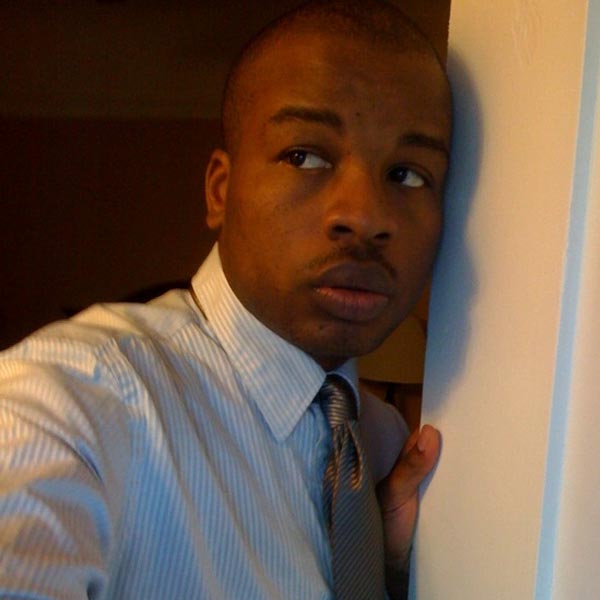
Marcus Gardley (playwright) is a multiple award-winning poet-playwright who recently won the prestigious 2008 Helen Merrill Award and a Kesselring honor. His two most recent plays, This World in a Woman’s Hands (October 2009), and Love is a Dream House in Lorin (March 2007), both received outstanding critical acclaim and sold-out runs in Berkeley, California. The latter was nominated for the National Critics Steinberg New Play Award. He has had six plays produced including: dance of the holy ghost at Yale Repertory Theatre (now under a commercial Broadway option), ...and Jesus Moonwalks the Mississippi at Brown University, Georgetown University, and Umass Amherst; (L)imitations of Life, at the Empty Space; and like sun fallin’ in the mouth at the National Black Theatre Festival. He is the recipient of the San Francisco Bay Area’s Gerbode Emerging Playwright Award, the National Alliance for Musical Theatre Award, a Mid-Atlantic Arts Foundation Grant, a NEA/TCG Playwriting Participant Residency, the Eugene O’Neill Memorial Scholarship, and the ASCAP Cole Porter Prize. He holds an MFA in Playwriting from the Yale Drama School and is a member of New Dramatists, The Dramatists Guild and the Lark Play Development Center. Gardley, a native of West Oakland, was recently chosen as one of 50 writers to watch by Dramatists Magazine. The premiere of his new play, On the Levee, will premiere at Lincoln Center in July. He teaches Playwriting and African-American studies at Umass Amherst.

Amy Mueller (director) has directed and produced original theater for the past twenty some years. She is the Artistic Director of Playwrights Foundation, co-producer of Jesus Moonwalks, and in nine years has transformed the organization into a year-round national center for playwrights and new play development, and continuously works on the development on new American Theater. Artistic credits include: director of the development of The Fourth Messenger, a new musical by Tanya Shaffer, with whom she developed and directed the award winning play Let My Enemy Live Long! at Berkeley Rep; other credits include: Between This Breath and You by Naomi Wallace, a world premiere; Voices Underwater by Abi Basch (director); 365 Plays/365Days Week Three by Suzann Lori Parks, One Big Lie by Liz Duffy Adams (dramaturg/producer); co-creator of The Mandala Olive Project; with Denmo Ibrahim; Coming Home by Motti Lerner, and Between The Eyes by Naomi Wallace (director), with Golden Thread Productions. She has also directed at Berkeley Rep, San Diego Rep, A.C.T. Seattle and Arizona Theatre Company.
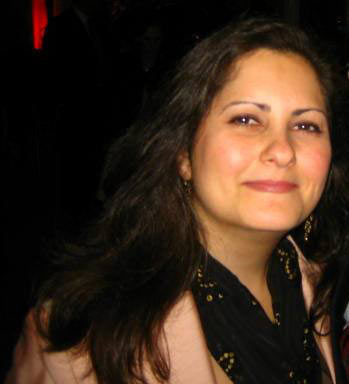
Nakissa Etemad is a professional dramaturg, literary manager, producer, and French translator who hails from San Francisco, CA, having worked full-time for The Wilma Theater in Philadelphia, San Jose Repertory Theatre, and San Diego Rep. She has fostered 15 world premiere musicals and plays and dramaturged over 75 productions and staged readings with such writers as Tom Stoppard, Arthur Miller, Lynn Nottage, Polly Pen, Charles L. Mee, Dael Orlandersmith, Doug Wright, Luis Valdez, Heather McDonald, Octavio Solis, Julie Hébert, Thomas W. Jones III, Culture Clash, Chay Yew, Steven Dietz, Katori Hall, David Adjmi, and Marisela Treviñ o Orta. Highlights include serving as dramaturg for the East Coast Premiere of Arthur Miller’s penultimate play Resurrection Blues; The Philadelphia Orchestra & The Wilma Theater’s Every Good Boy Deserves Favor by Tom Stoppard & André Previn, starring David Strathairn; and producing the San Jose Rep’s 5th Annual New America Playwrights Festival, featuring writers Lynn Nottage, Polly Pen, James Milton, and Naomi Iizuka. Ms. Etemad has also provided dramaturgy for Arizona Theatre Company, O’Neill Music Theatre Conference, La Jolla Playhouse, George Street Playhouse, Bay Area Playwrights Festival, The Cutting Ball Theater, Crowded Fire, and Woman’s Will. She holds an MFA in Dramaturgy from UCSD and certificates from Le Cordon Bleu Culinary Institute, London.
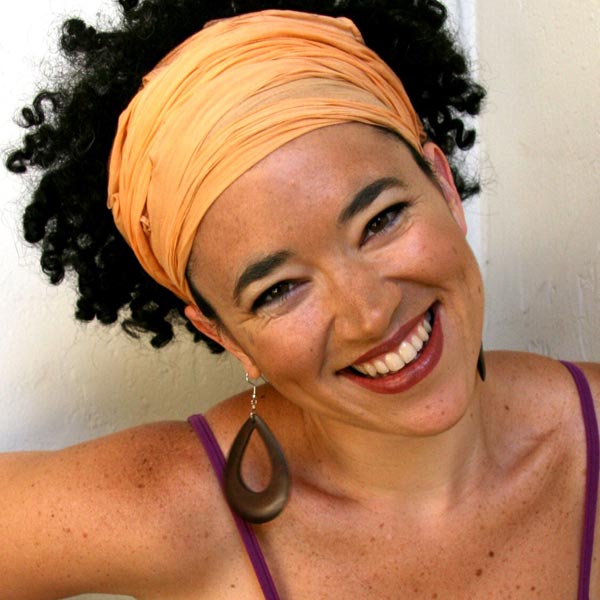
Rami Margron (Choreographer) is working with Cutting Ball for the first time. Her recent choreography includes Learn to Be Latina with Impact Theater, Hair at The Willows and Drip with Crowded Fire. She is trained in roughly twenty styles of dance. She is a former member of Haitian dance company Group Petit la Croix and African Diaspora dance-theater troupe Reconnect. She is also a local actor and a member of Crowded Fire Theater Company.
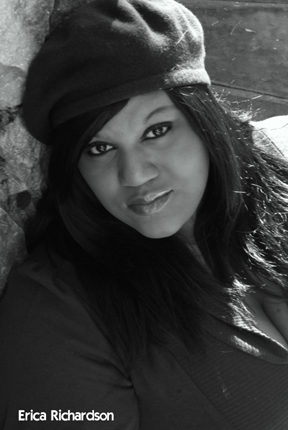
Erica Richardson (Musical Director/Chorus) makes her Cutting Ball debut with ...and Jesus Moonwalks the Mississippi. Bay Area theater credits are Joanne in RENT (Golden State Theater Productions) Trash Can Sally in Rent Boy Avenue (Box Car Theater Company), and Dionne in Hair (Willows Theater company), for which she received a Shelly nomination. Born and raised in Connecticut, Erica is a recent graduate from the Actors Training Program at the University of Utah.
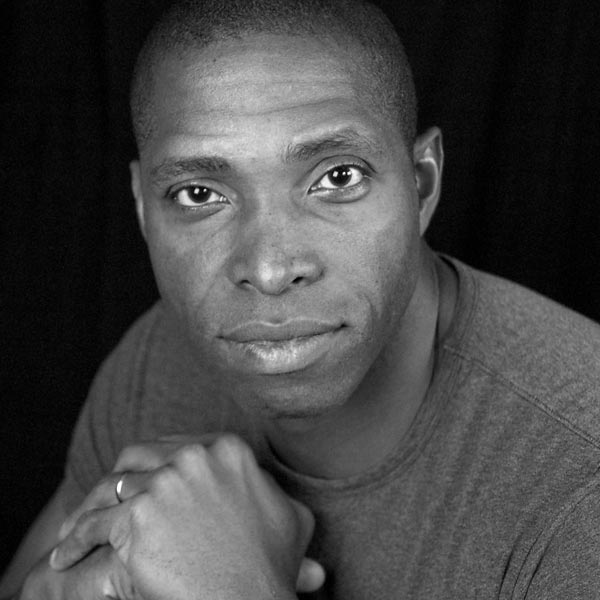
Aldo Billingslea* (Damascus/Demeter) makes his debut at The Cutting Ball Theater with ...and Jesus Moonwalks the Mississippi. His credits include: A Midsummer Night’s Dream and Coriolanus at Shakespeare Santa Cruz; Joseph Merrick in The Elephant Man, and Harmond Wilks in Radio Golf at TheatreWorks, Yank in The Hairy Ape, Frederick Douglas & Jim in Scott Kaiser’s Splittin’ the Raft at Marin Theatre Company, and Officer Simmons in The Rant at InterAct Theatre in Philadelphia. Other regional theatres include: Renegade Theatre Experiment, The Magic, ACT, Playwrights Foundation, Center Repertory, Playground, Portland Center Stage, the Old Globe Theatre and Shakespeare Festivals of Marin, Dallas, Illinois, Utah and Oregon. Billingslea is a Playground company member, on the board of Renegade Theatre Experiment and teaches acting at Santa Clara University.
*The Actor appears through the courtesy of Actors' Equity Association, the union of professional Actors and Stage Managers in the United States.
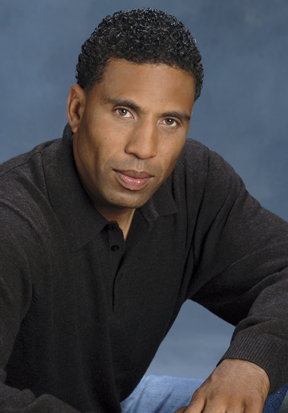
Myers Clark (Damascus/Demeter Understudy) is pleased to make his return to the Cutting Ball stage, after his appearance as Black Man with Watermelon in The Death of the Last Black Man in the Whole Entire World and 365 Days/365 Plays by Suzan-Lori Parks. Myers has also appeared in Risk is This: The Cutting Ball New Experimental Plays Festival, in readings of Tamer Tamed, Trojan Barbie, LightHouse, and Troilus & Cressida as part of the Hidden Classics Reading Series. Most recently, Myers was seen as Hud in Hair at the Willows, and as Man in For All the Babies’ Fathers at Brava! For Women in the Arts. His favorite role was Andre in Angry Black White Boy with the Intersection for the Arts and Campo Santo. Other roles include Tom in Saroyan’s Time of Your Life, Gabe Gabriel in Gordone’s No Place to be Somebody, Winston in Fugard’s Sizwe Bonzi is Dead and The Island, Vaska in Maxim Gorky’s Lower Depths (all at Next Stage), and ensemble roles in: One Flew Over the Cookoo’s Nest with Actors Theater; All’s Well That Ends Well with California Shakespeare Theatre; Porgy & Bess with War Memorial Opera House; and Love’s Fire with New Langton Arts. Myers has also worked with the Magic Theatre’s Playwrights Festival, reading roles of Aaron the Moor in Othello Papers, and Choir Leader in Let Every Tongue Confess by Marcus Gardley. Film and TV credits include “Trauma,” RENT, and Getting Even with Dad.
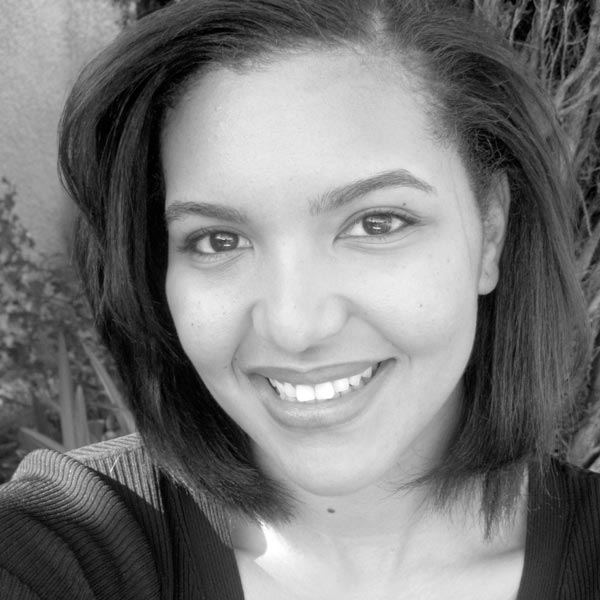
Rebecca Frank (chorus) is thrilled to be making her Cutting Ball debut with ...and Jesus Moonwalks the Mississippi. Past performances include The Shotgun Players Production of This World in a Woman’s Hands by Marcus Gardley, and Picasso at the Lapine Agile with The Mills Players. Rebecca is a recent graduate of Mills College where she studied vocal jazz improvisation and received a BA in creative writing.
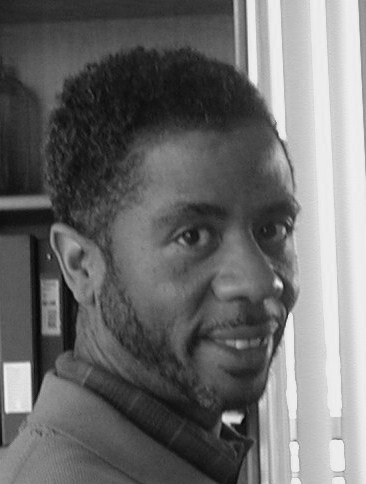
Martin F. Grizzell, Jr. (Brer Bit) makes his debut with The Cutting Ball Theater and brings with him an international resume. Mr. Grizzell has worked with The Interdisciplinary Dance Theatre of Holland, performing throughout Europe and the U.S. including Nice, Cannes and New York City’s Lincoln Center. He has appeared on stage as El Gallo in The Fantasticks; as Deodatus Village in Jean Genet’s The Blacks; as Miss Roj in The Colored Museum and as a principal in the ensemble performance La Baker – A Musical Review of the Life of Josephine. Grizzell was most recently featured in the African-American Shakespeare Company production of Cinderella as Zonita, the evil stepsister. At present Grizzell may be seen in the internet drama, Noah’s Ark and the International 48-Hour Film Shoot-Out film, A Better Place. A veteran textile artist, Martin Grizzell’s quilts and tapestries are represented in the collection of the National Museum, Smithsonian Institute, Washington D.C. A former radio personality, Martin has written for the San Francisco Examiner – Chronicle and is a contributor to the Pacific Newsletter, Monterey, California. A musician and vocal coach, Martin enjoys playing piano and the tenor saxophone.
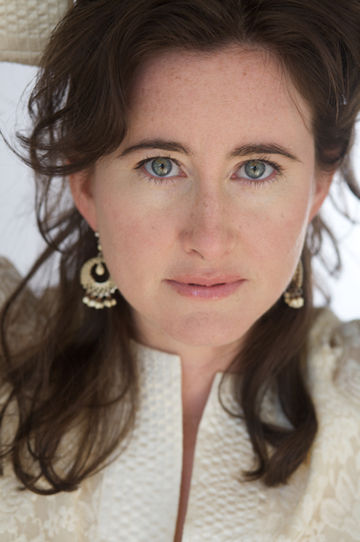
Jeanette Harrison (Cadence Verse) is delighted to make her Cutting Ball debut. A proponent of new work, she has participated in readings, workshops, or premieres with Theatre Rhino, Berkeley Rep, Lorraine Hansberry Theatre, Restless Minds, Playhouse West, Golden Thread, Aurora Theatre, Magic Theatre, 142 Throckmorton, and AlterTheater Ensemble, where she is a founding member, and will appear later this spring in Caryl Churchill’s Owners. Other credits include San Francisco Shakespeare Festival, Cal Shakes, Sonoma County Rep, Golden Thread. Favorite roles include Olive Schreiner in Jessica Goldberg’s Sex Parasite, Rosalind is As You Like It, Trillian in Hitch-hiker’s Guide to the Galaxy (WHPK, Chicago), and Melody in the independent film Zingaroo, winner of multiple awards including Best Actress from the West Valley Film Festival. She recently filmed a supporting role in the feature film, Love On the Line.
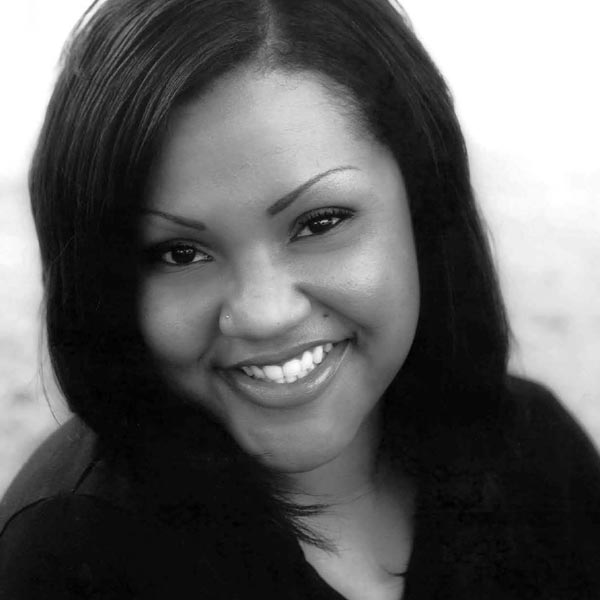
Nicole C. Julien (Miss Ssippi) is pleased to be making her Cutting Ball debut in a play written by such a talented playwright. Since receiving her B.A. in Theatre Arts in 2000, she’s been performing all over the bay area. Past productions include: Hair City Lights Theater Co., Rust The Magic Theatre, Cabaret Shotgun Players, Aida Alameda Civic Light Opera, and Man of LaMancha SF Playhouse.
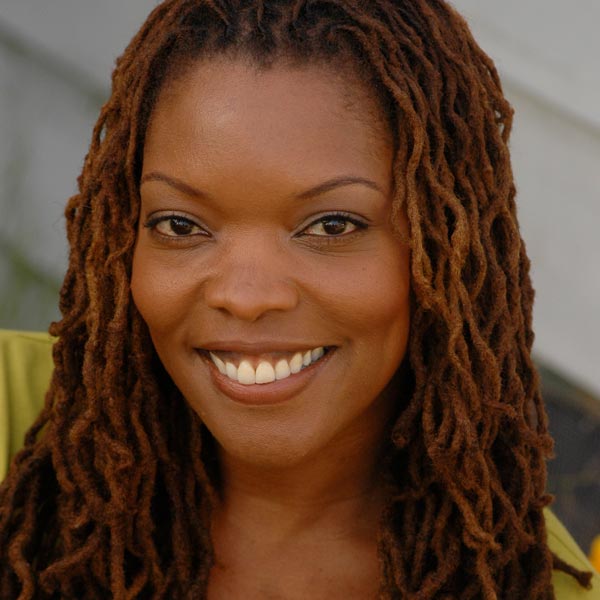
Halili Knox (Chorus) is thrilled to make her Cutting Ball debut with ...And Jesus Moonwalks the Mississippi. She most recently appeared in a staged reading of Makeover (Belle) as part of the New Works Festival at TheatreWorks, and worked as an understudy in A Civil War Christmas (Elizabeth Keckley, Hanna) and Caroline or Change (Radio 1). Halili has performed in The Story (Pat Johnson), co-produced by SF Playhouse and Lorraine Hansberry Theatre; Who Loves Ya, Baby?—a cabaret she wrote, produced and directed; and Theatre Q’s My Strange Nation: The Music of Susan Werner (Ensemble). HGTV (Home and Garden Television) enthusiasts may remember her as the deal-finding co-host of Double Take, a national interior design makeover show. Halili is a native of East Palo Alto and proud graduate of Howard University.
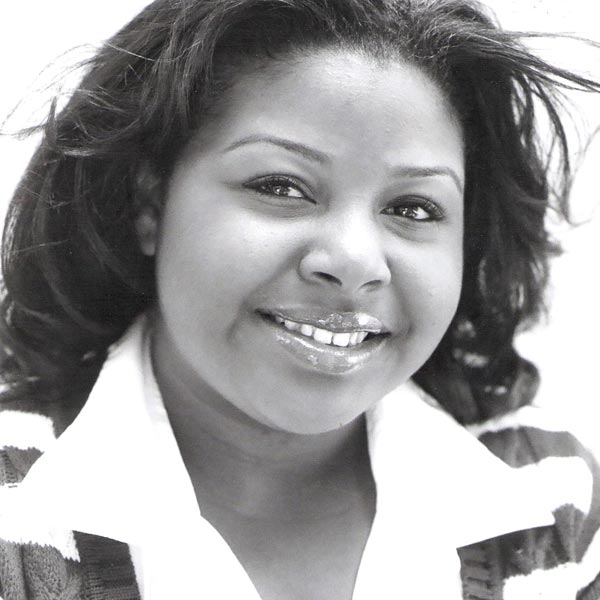
Erika A. McCrary (Free Girl) makes her San Francisco debut with ...and Jesus Moonwalks the Mississippi. A Bay Area native, Erika has always cultivated a love of the arts. She recently appeared as Michelle Drysdale in the award-winning independent film Law & Disorder. She is a graduate of Howard University with a BFA in Musical Theater, and she looks forward to earning her Masters in Liberal Arts Management.
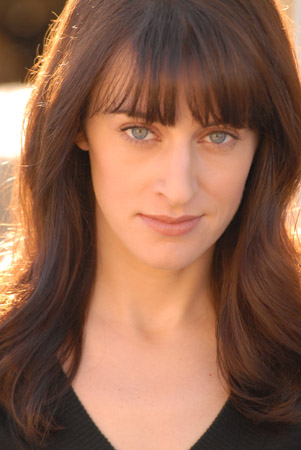
Sarah Mitchell (Blanche Verse) makes her Cutting Ball debut with ...and Jesus Moonwalks the Mississippi. Recent credits include The Norman Conquests and The Farm with Shotgun Players, Abraham Lincoln's Big Gay Dance Party with SF Playhouse, and See How We Are with Impact Theatre. She is a company member with Killing My Lobster, San Francisco's premier sketch comedy troupe, where she performed in the mainstage shows KML Faces the Music, KML For the Very First Time, KML Goes to the Polls, amongst several others. She is also KML's Creative Director for New Plays. She received a BA from Rice University.
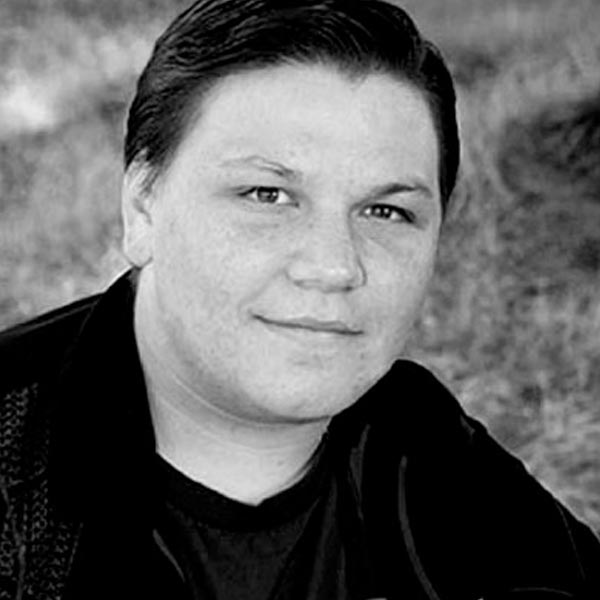
Zac Schuman (Yankee Pot Roast) returns to the Cutting Ball stage after appearing in Risk is This...The Cutting Ball New Experimental Plays Festival. Zac was most recently seen in History Boys at New Conservatory Theatre Center. He has studied with A.C.T.'s young conservatory, and the Marin School of the Arts.
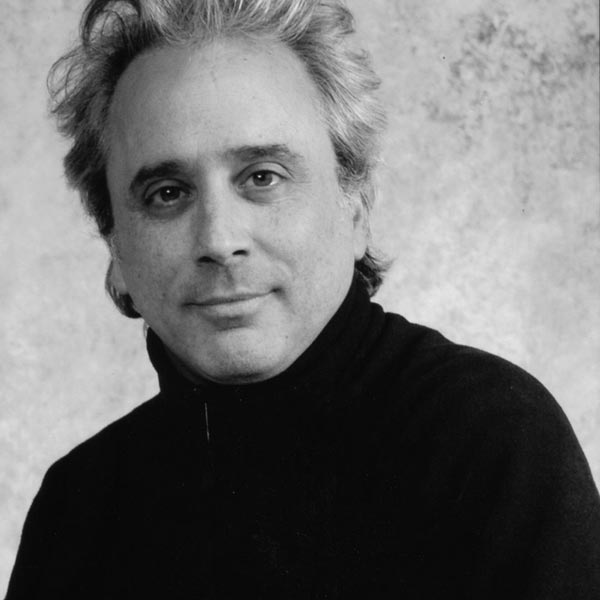
David Sinaiko (Jean Verse)is proud to be a Cutting Ball Associate Artist, having appeared in their productions of The Bald Soprano, Krapp’s Last Tape, Victims of Duty, Endgame, The Taming of the Shrew, As You Like It, The Sandalwood Box, Ajax for Instance, Macbeth, 365 Plays/365 Days, Woyzeck, Chain Reactions and The Hidden Classics Reading Series. He was a founding member of Chicago’s New Crime Productions where credits include Heart of a Dog, The Balcony, Fear & Loathing in Las Vegas, Accidental Death of an Anarchist, Methusalem, and Alagazam! He was seen in A Midsummer Night’s Dream and A Flea in Her Ear at the Goodman Theatre, The Big Show with The Actor’s Gang, and during the holidays in a one-man production of The SantaLand Diaries. Film and television credits include The Grifters, Bob Roberts, Carnosaur and The Untouchables. David is analumnus of NYU’s Experimental Theater Wing and Stella Adler Conservatory. Other recent credits include Golden Thread’s Jihad Jones & the Kalashnikov Babes, Crowded Fire's Wreckage and SF Playhouse's One Flew Over the Cuckoo's Nest.

David Westley Skillman (Jesus/The Great Tree) is excited to be working with Cutting Ball again. David was in Risk is This . . .The Cutting Ball New Experimental Plays Festival, Alien Motel and Wet, The Taming of the Shrew, and The Death of the Last Black Man in the Whole Entire World. David was last seen performing in Christina Anderson’s Drip as Jerome with Crowed Fire, and the Thick Description’s production of Suzan-Lori Parks The America Play as John Wilkes Booth. He was also in the Thick Description’s co-production with San Jose Stage Company of Octavio Solis’ Gilbraltar. David has also worked with Second Wind Productions, The Lorraine Hansberry Theatre, Central Works, Theater First, The African American Shakespeare Company, SF Fringe Festival and FoolsFury. Some of David’s favorite roles include being a stepsister in Cinderella, “Booth” from Suzan-Lori Parks’ Top Dog Under Dog and the title role in Othello at AASC. Television credits include; Trauma – NBC, and Nash Bridges – CBS. Film credits include The Confessional, The Calling of Harvey Brewster, Deep End, Small Things, Ju Ju Love, The Last, Thomas Dailey, Live Intel, Hester Schell’s Just Under a Million, Thomas Puig’s Madoff’ Inferno!
Technical
Michael Locher (Set Designer) is a Cutting Ball artistic associate and has collaborated with director Rob Melrose on numerous productions. For Cutting Ball, he designed the sets forRoberto Zucco,The Vomit Talk of Ghosts,Macbeth,Victims of Duty,Avant GardARAMA!,Bone to Pick, andThe Bald Soprano. Elsewhere:Happy Days(Guthrie);Goldfish and Mrs. Whitney(Magic);Trouble in Mind(Yale Rep);LeavingIowa(The Adirondack Theatre Festival);God, Sex & Blue Water(The Lion Theatre);Richard III andVenus(Yale School of Drama);Sin(Off-Broadway);La Finta Pazza (Yale Opera);Guys and Dolls(Broadway, Assistant Designer). Locally:Seven Guitars,Ain't Misbehavin',The Piano Lesson(Lorraine Hansberry Theatre);The Train Play(Crowded Fire);The Bright River(Traveling Jewish Theatre);The Creature(Black Box Theater). Education: UC San Diego, Yale School of Drama.
Callie Floor (Costume Designer) is happy to be working with the Cutting Ball for the first time. Recent projects include Sunlight for Marin Theatre Company andOh, Lovely Glowwormfor A.C.T.’s M.F.A Program; she is working on the upcomingLa Traviatafor West Bay Opera. She has designed for many Bay Area theaters including A.C.T., Aurora Theatre, The San Francisco Mime Troupe, and Zaccho Dance Theatre. Callie is the resident designer for the California Revels and currently holds the position of Costume Rentals Supervisor for A.C.T. She has a BFA from the University of Utah and a Higher Diploma in Theatre Design from the Slade School of Fine Art, University College London.
Heather Basarab (Lighting Designer) has worked with Cutting Ball onMud, The Taming of the Shrew, Victims of Duty, Endgame, Avant GardARAMA! 2008, andThe Maids. Other recent Bay Area designs includeMiss Julie with Aurora Theatre;Light Essayswith Im’ij’re Dance;Fuku Americanuswith Campo Santo; AXIS Dance Co.’sLight Shelter(David Dorfman)the beauty that was mine, through the middle, without stopping (Joe Goode) andVessel (Alex Ketley); Birdhouse Factory with Cirque Mechanique, and Wonderboywith the Joe Goode Performance Group, with whom she received an Isadora Duncan Award for the production design ofDrowsy.
Cliff Caruthers (Sound Designer) has created soundscapes and music for over a hundred Bay Area productions. He is an artistic associate of Cutting Ball Theater, having designedVictims of DutyandMud. He is also the resident sound designer for TheatreWorks and a company member of Crowded Fire. Recent theatre projects includeCaucasian Chalk Circlefor American Conservatory Theater,The Creaturefor Black Box Theater,Happy Daysfor Guthrie Theater,Crime and PunishmentandTragedy: A Tragedy for Berkeley Repertory Theatre,Yellow FaceandCaroline, or Changefor TheatreWorks,Dead Man's Cell Phone andBugfor SF Playhouse,Anna Bella EemaandDripfor Crowded Fire. Outside theatre, he is co-curator of the San Francisco Tape Music Center, and has performed his electronic music at the Prague Quadrennial, 964 Natoma, Deep Wireless, Noise Pancakes, SFEMF, SFTMF, and SEAMUS.
Jocelyn A. Thompson (Stage Manager and Assistant Sound Designer) is making her Cutting Ball debut with...and Jesus Moonwalks the Mississippi. She is originally from the East Coast and holds a B.F.A. in Theatre Education with a specialization in Theatre Technology from Howard University. Since moving to CA she has worked in the capacity as a sound fellow for Berkeley Repertory Theatre and as the Production Manager for Brava! For Women in the Arts. Past stage productions includeOedipus Rex, Mad Breed, #5 Angry Red Drum, Me, Myself and I Series,Exonerated, andA Raisin in the Sun.
Stephanie Desnoyers(Assistant Stage Manager) was the assistant stage manager for Cutting Ball’s production ofKrapp’s Last Tape. She was the festival stage manager for the Antistrophe Ensemble’s production ofAll’s Fair, an experimental project with several members of the Cutting Ball family. Her other stage management credits includeDames at Sea with the New Conservatory Theatre Center,Romeo & Julienwith Boxcar Theatre, andThe Constant Prince with Unseam'd Shakespeare Company. She has also stage managed the San Francisco Conservatory of Music’s productions ofThe Musical of Musicals (The Musical), You’re a Good Man, Charlie Brown andUrinetown. She has had the opportunity to assistant stage manage the world premier ofDark Northat Scotland’s Edinburgh Festival Fringe. Stephanie holds a B.A. in Theatre-Design & Technology from Slippery Rock University in Pennsylvania.
Annie Paladino (Assistant Stage Manager) is excited to be making her professional stage management debut with Cutting Ball Theater. Annie is currently Cutting Ball’s Management Intern, and serves on the 10 Year Anniversary Committee. Also an actor, she made her Bay Area debut inLife as Art, part of the Climate Theater’s 2009 Resident Artist Showcase. She recently graduated from Wesleyan University (CT) with a B.A. in Theater and Psychology, receiving High Honors on her thesis production ofHappy Days.
Alysse Gallo (Props Designer/Assistant Set Designer) is excited to make her debut with Cutting Ball Theater. Alysse had the pleasure of working at Marin Theatre Company on their production ofMy Name is Asher Levas assistant set designer. She has also recently graduated from UC Berkeley with a B.A. in Practice of Art.
Corinne O’Sullivan (Master Electrician) is excited to be working with Cutting Ball for the first time. She is the master electrician at Theatreworks and also works as a freelance electrician, stagehand, and lighting designer for various theatres and event companies. Corinne is currently working on her first novel.
Teaching Jesus to Moonwalk: Revealing the Craft of Playwright Marcus Gardley
By Nakissa Etemad
Nakissa Etemad is a San Francisco-based dramaturg, producer, and translator and the Resident Dramaturg for The Cutting Ball Theater. She served as dramaturg for Cutting Ball's The Bald Soprano & last season's award-winning production of Victims of Duty, and is the former Dramaturg & Literary Manager for The Wilma Theater, San Jose Rep, and San Diego Rep.
The Cutting Ball is in the final rehearsal weeks of Marcus Gardley's upcoming play ...and Jesus Moonwalks the Mississippi. This play that weaves poetry, myth and spirituality into a ‘gumbo' full of flavors and multiple story threads is about to set the Bay Area theatre scene alight.Marcus speaks with his dramaturg Nakissa Etemad about writing plays and how he creates his unique worlds, as they unlock the secrets to Jesus Moonwalks.
NE: How did you become a writer?
MG: I think I've always been a writer. I've always written poetry—I don't ever remember not writing poetry. So I feel like I've always been a writer as far back as I can remember. I became a playwright when I enrolled in a creative writing class at San Francisco State University. And in my poetry classes a lot of the professors were saying these are not poems, these are plays. And I would argue with them and say, ‘Oh no, you're wrong, these are poems—they're just different.' And they said, ‘But they have character names, and stage directions....' And so, they encouraged me to take a playwriting class, and I knew from the first class, this is what I was going to do with my life.
NE: How did you get involved with The Cutting Ball Theater?
MG: Amy Mueller at the Playwrights Foundation, who's directing this play, introduced me to a wonderful artistic director by the name of Rob Melrose. I think it's a great merging of this type of play and the esthetic of the theater—they do a lot of beautiful avant-garde work and a lot of work from emerging new voices in the theatre, and I think it's just a great fit.
NE: So do you consider yourself an avant-garde writer in some ways?
MG: I don't necessarily. I feel like this specific play could be considered an avant-garde piece, but I sort of align myself more with the school of magical realism, Tony Morrison, Gabriel García Márquez, Lorca, that type of work.
NE: Cutting Ball has quoted you as calling this your signature play. What do you think is ‘signature Marcus Gardley' about this play?
MG: Well, you know, I think in all my work I try to weave in three elements that I'm really sort of obsessed with as a writer: poetry, myth, and spirituality. And I think, for the first time with this play, I was able to do it in a sort of a balanced way, and so in that way it's my signature play. I think this [is the] play I've worked on the most... I started it in 2003, and I feel like I've finally gotten to a place where it's complete. And so, in that way, it's a great example of my career so far. And my signature voice in dealing with these epic elements, and how they merge.
NE: What was the genesis of ...and Jesus Moonwalks the Mississippi?
MG: Well, I started to write this play when I was in my second year at Yale drama school. And I really wanted to write a play about my grandmother and her father. And when I was young my grandmother used to tell me this really amazing story about how her father freed himself. And she would always start the story with the lines: ‘This is the story of Madison Eden who freed himself from slavery.' And that was just really powerful. And as I got older, the story would change over time. She loved to have family gatherings where she would tell us stories, and she had this really powerful way of extending her hand over the family as if to bless them before she would tell these beautiful stories. She would also sing spirituals and pray. And so the story, over time, would progress. And when it first started off, it was really magical: her father who freed himself from slavery who befriended Abraham Lincoln and who wore a dress. Because during that time it was easier for an African American woman to travel up north than it was [for] a man. So when I decided to write this play, I called her and I said, ‘Can you please tell me the original story, the real, true story?' And I don't know if she could not remember it, or if she just chose to sort of pass the story down to me. Because she said [to me], ‘You know, you need to tell your own version.' And in that way I think she really didn't know the real truth anyway in that she was sort of making sense of her father's life from what she then could remember. And so that was my task. And I was really charged to take this story that she told me and add my own spin to it. And this is what Jesus Moonwalks asks of the audience in the beginning, it asks you to invest yourself, become an active participant in the telling of this story.
NE: You've called the play "the untold story of the Civil War from the slaves' perspective." Is that what you set out to do?
MG: I don't know if I set out to do that. But I do feel like we have so [few] accounts of how slaves felt about the civil war and about how it affected them—especially slaves that were in the south, and trying to find freedom, and trying to escape during that time. So what I did was I tried to take elements or fragments from what I knew about these people and put them into the play as a sort of way of giving an homage to who they were and their struggle, but also putting their voice into the play. And so it's poetic on purpose, because I think poetry has a really great way of speaking to the past but also being very present.
NE: This play is so rich and full of different threads, different sources of inspiration, different characters, that likely each person in the audience will connect with something different. But if there were 1 thing you wanted your audience to walk away with after seeing ...and Jesus Moonwalks the Mississippi, what would it be?
MG: I would hope that audiences leave this play feeling like they were a part of it. I would hope that they felt like they learned something, but also that they took away something that added to their daily lives and shared it with another person. In a lot of ways this play is a gumbo. And a gumbo in Louisiana is something that you share; you don't make it for yourself, you make it for a whole bunch of people. But it's also a soup that has a lot of ingredients in it. And it has a lot of ingredients on purpose because like community is complex and diverse and epic, so is the sharing of it. And so when you eat a bowl of gumbo, you share your stories, you share all of who you are. And we all share all of who we are. And so you leave—you come away with a very complex, delicious experience that lasts you a lifetime.
NE: Music often plays a part in your plays. This play is filled with spirituals and musical expressions of people's desires. Why and how does music find its way into your writing?
MG: The way music works in my writing and in particular in this play is that it weaves together many elements in the play. And I think I use spirituals specifically in this play because spirituals have a profound effect on who we are as citizens of the United States of America. I think we all relate to spirituals in a very profound way. I think we all have an attachment, an emotional attachment to spirituals. And so whether there is some part of the play you don't understand, there may be some character that you're not quite grasping, it is the spirituals that help you, that guide you through the play, that weave and thread through the different parts of this play as if it's a quilt. And what I hope [happens when] audiences come to this play is that they sing along with us—this play is meant to be active. It's meant for you as an audience member to become an active participant in the telling. And that's what music, these songs [are there for], they're meant to be sung by all who hear them. And that's why spirituals are perfect for this type of play—sort of a community or a group play in that the audience is an active participant in the telling of the story. And so at the top of the play, the narrator Mississippi River will invite you to sing along, to add your own thread to the play—and that means take what you can, and, as my dad says, leave the rest to the garbage men.
NE: So in this play some characters are supernatural, some are real people, and some transform from real to supernatural. How do you create one world in which they co-exist?
MG: I think the world of this play allows for both supernatural, natural, and those elements that exist in between to work cohesively. I also I don't see the world's certain elements as being supernatural—for example, the Mississippi River [character] is both a woman and a river. So I think, she can be seen as supernatural, but in some ways she's the most natural thing in the world. So I guess one way to explain [it] is I grew up in the church, and in the church I think what's more real is the supernatural, that the way in which people express themselves is more supernatural than natural. And so that's always [been a] part of me. And what I love about theatre is that theatre works in the same way; that people are open and excited about a form of expression that is different, that is unique from their own. And I think people come to theatre to sort of get outside of their bodies, and also to explore what is supernatural about who we are as Americans.
NE: When I asked you this in the coffee shop, you described this as "theatre can't be real; it's always surreal. And I grew up in the church, so it's the most natural thing.” Can you talk a bit more about that?
MG: [In general], I think theatre can't be real. I think theatre is supernatural at its core. I think the very act of sitting in the audience and experiencing a story and watching it unfold, there's something very supernatural about that, you know. And so I love that about theatre, and I think we go to theatre to sort of get away from the real everyday mundane-ness of our lives.
NE: Your play has a lot of mythology in it. What inspires you about mythology?
MG: Well, when I started to write ...and Jesus Moonwalks the Mississippi, I knew that I wanted to base it upon a Greek myth because I thought this event in history is so epic, and [I knew] the play is going to be epic. And I didn't want it to overwhelm the audience. So what's great about adapting—or loosely adapting a myth is that we already know a story within the story; we already know the core of the story. We already know the weight of the Demeter myth which is the myth of a Goddess longing for her daughter [Persephone] whom she lost. And the weight of a slave whose child was taken from them is that huge, if not bigger. And the great thing about using this myth is it's already in our conscience, it's already in our history, and we know how huge that is. So that's why I use the sacred story of the Demeter myth.
NE: If this is the story of Demeter, why do we never meet Persephone?
MG: We never meet Persephone because I feel like Persephone is the part of the story—at least in terms of this play—that you never know the truth about. You never know her side of the story. When I read the Greek, the Demeter myth, I never felt like Persephone's opinion of Hades [who takes her from her home and makes her his wife of the Underworld] was ever explained. Did she really want to be with him, or did she not? And that's what I think is so powerful about that myth; it's open to interpretation. We know that her mother [Demeter] longs for her, but we don't know if she is mourning her mother when she's away, all that time. And so in this way the Persephone part of the story is left out, it's open to interpretation. But all of the characters in the play have opinions about Persephone [whom the play calls "Po'em”], and all of them want her.
NE: Was this writing process different from the writing process of your other plays?
MG: Very different than processes I've had to undergo writing my other plays. What's really unique about the writing process of ...and Jesus Moonwalks the Mississippi is that I really had to listen to the voices. I really had to let go of the history, not hold so tight to the myth or the music. And then just really let the voices speak to me, let the voice of my grandmother, the voice of the people that experience this story speak to me. And more often than not, the way I write is I do research, I sculpt like I'm creating some type of sculpture with clay; I cut and then it's done. And this has been a long process. And I've shelved this play quite a few times, and it never let's me forget it, it never leaves me alone, you know what I mean? A theater would call and say, ‘Look, we heard about this play, we want to do a reading.' And for one reason or another I said okay, I have to get back to it. And I would read it and I would realize, ‘Oh no, there's some good stuff here.' And I would go back to it. It became an obsession. And I feel like when I was able to get out of the way and listen, and stop trying to impose my own craft elements, my own traditional sort of ways in which a playwright should write a play that the play started to reveal itself. And I noticed that with this complete draft, I got back to the original impulses from when I started the play.
NE: You grew up in Oakland, received an MFA in playwriting from Yale, now you live in NY and teach at UMass Amherst. You've done a lot of readings in the Bay Area, worked with Bay Area Playwrights Festival mostly, Cutting Ball's Risk is This, Shotgun Players.... Do you notice a difference between east coast and west coast audiences? Do they respond differently to your work?
MG: I think for the most part, east coast and west coast audiences respond very differently to all work, and to my work as well. I think what I find here in the Bay Area which I really love is that audiences tend to be more open to new forms of expression. They tend to look at a play as a unique world, and I think they are more open to the ways in which the rules of this world work, that each play is a new experience. And in this way it allows for writers who are speaking into the void, who are trying to explore new forms of expression, it allows us to play and explore. I think that exists in the east coast as well, but I think here, [that openness exists] because of the environment, the progressive and liberal way in which I think theatre artists express themselves and speak and some of their passions.... I think with the east coast, they appreciate the work for its intellectual value, and that they're more obsessed with the history and the ways in which the myth works in the play. And I think in the Bay Area, all those elements are exciting [to these audiences], so, you know.... It's a give and take.
A Sidebar on the Playwright-Dramaturg Relationship
The playwright and dramaturg have a close relationship, as the dramaturg is midwife in the birthing of the play. Over the course of many months, sometimes years, playwright and dramaturg, plus director nurture the play's development by the two serving as sounding-boards and collaborators in helping the playwright achieve his or her goals. As we get closer to the rehearsal process and the written word begins its transition to the stage, other collaborators are brought in, such as designers, and choreographers, music directors; etc, to participate in the next phase of birthing the play. Director Amy Mueller, Marcus, and Nakissa have a long history of various collaborations with one another over the years through the Playwrights Foundation and its Bay Area Playwrights Festivals, but Cutting Ball is the first to bring the trio together on a production project. With Jesus Moonwalks, we had the good fortune last December of an additional week before rehearsals began to workshop the piece, with Marcus in attendance for the final days to hear an open-process reading at Cutting Ball. We learned so much in the process, and it was the perfect way to begin our journey of bringing Jesus Moonwalks to life.

